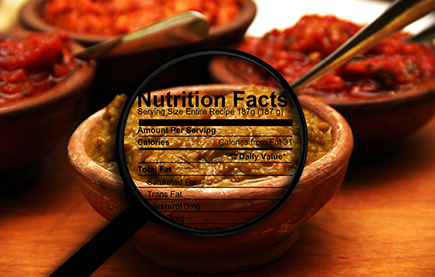GODAN Summit 2016
-

September 15, 2016-September 16, 2016
8:00 am - 5:00 pmNew York City, NY, USA
Open data is at the centre of innovation in agriculture, food security and nutrition. Data is elemental to identify needs, track progress and make change happen.The Agriculture & Food Systems Institute is leading an effort to greatly expand the use of open data in nutrition modeling, in close collaboration with the Global Open Data for Agriculture and Nutrition (GODAN) initiative. The GODAN Open Data Summit brought together world leaders, researchers, farmers, students and leadership from the public and private sectors to collaborate on making agriculture and nutrition data open and available in order to accelerate the attainment of a zero-hunger world. The GODAN initiative was formed two years ago to support global efforts to make agriculture and nutrition data available, accessible, and usable for unrestricted use worldwide. There are now more than 300 partners from nongovernmental, international and private sector organizations and national governments. The initiative focuses on building high level policy and institutional support for open data, both in the public and private sectors.
Program
The two-day highly interactive Summit featured sessions highlighting best practices as well as barriers and solutions on different topics from precision farming to using data to measure progress towards achieving SDG2. The Agriculture & Food Systems Institute presented during the “Using Data to Improve Nutrition Policy, Programming, Accountability” session.
2016 GODAN Summit: Blog Post
Dave Gustafson, Agriculture & Food Systems Institute
Open Data – Findable, Accessible, Interoperable, Reusable (FAIR). Does this idea really have the potential to help provide safe, nutritious food to everyone on the planet? And could such data make it possible for that food to be provided in ways that reduce environmental impacts and improve lives?
These are just two of the big questions raised at the 2016 GODAN Summit, held in New York City on September 15-16. GODAN stands for the “Global Open Data for Agriculture and Nutrition” initiative, which in less than two years has inspired nearly 400 entities to join – governments, universities, companies, NGO’s, and others – including the organization I work for, the Agriculture & Food Systems Institute.
Here at the Agriculture & Food Systems Institute, we use computer modeling to help food systems meet nutrition needs in more sustainable ways. These models require access to many different types of agricultural and nutrition data, so I was quick to accept the invitation to become part of the 2016 GODAN Summit, where I knew there would be many scientists looking for new ways to make such data available.
I’m pleased to report that I met many such researchers at the Summit, and I learned many things about the power and promise of open data. The GODAN team created a wonderful video that opened both mornings, which displayed a number of satellite images that morph into human faces from around the planet, inspiring viewers to see the promise that agricultural and nutrition data have to positively transform lives in every country of the world. A powerful video created by the organization One illustrated how the entertainment world can be leveraged to help shine light on issues critical to human life – such as the supreme importance of good nutrition in an infant’s first 1000 days. The role of open data in helping to hold governments and other decision makers accountable was emphasized during the summit in a plenary presentation by Kerry Kennedy, daughter of Robert F. Kennedy.
The Summit featured several other dignitaries, including USDA Secretary, Tom Vilsack, who announced the release of the US Branded Food Products Database as an open data resource, the result of a highly successful public-private partnership between the USDA and our sister organization, ILSI North America. It contains, in a machine-readable format, all of the nutrition information printed on US food package labels. This database is a big step forward, enabling a variety of new consumer-facing apps that can access these data and use them to help better inform consumers about the nutritional content of their food.
At the Agriculture & Food Systems Institute, we are involved in a great public-private collaboration with several other researchers to take open data on food nutrient composition and connect them with models of food production trends. This means we can now forecast various measures of future food nutrient availability and food system performance, as described in our recent paper: “Seven Food System Metrics of Sustainable Nutrition Security.”
The overall theme for the panel I participated in was “Using Data to Improve Nutrition Policy, Programming and Accountability,” chaired by USDA Chief Scientist, Dr. Catherine Woteki. The other panel members included Dr. Shenggen Fan (IFPRI), Mr. Roger Thurow (Chicago Council on Global Affairs), Dr. Suneetha Kadiyala (London School of Hygiene & Tropical Medicine), Dr. Pamela Starke-Reed (USDA), and Dr. Samuel Myers (Harvard). It was an honor to be included on a panel with such gifted scientists, and I learned a lot from each of their presentations.
The task of sustainably providing nutritious food to all 10 billion of us by mid-century will not be easy. But it’s clear that the innovation and collaboration made possible through the use of open data will give us a fighting chance. I congratulate and thank the GODAN visionaries for taking the action to bring us together and begin the challenging task of transforming our food systems through open data.
